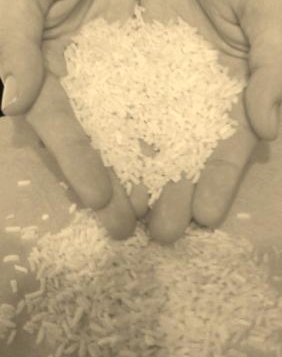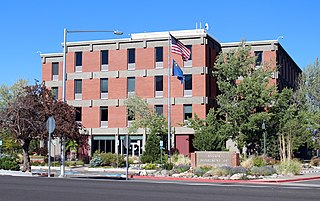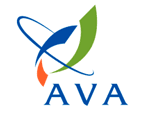Related Research Articles

The Committee on Agriculture, Nutrition, and Forestry is a committee of the United States Senate empowered with legislative oversight of all matters relating to the nation's agriculture industry, farming programs, forestry and logging, and legislation relating to nutrition, home economics, and rural development.
Agriculture and Agri-Food Canada is the department of the Government of Canada responsible for the federal regulation of agriculture, including policies governing the production, processing, and marketing of all farm, food, and agri-based products. Agriculture in Canada is a shared jurisdiction and the department works with the provinces and territories in the development and delivery of policies and programs.
The Agricultural Marketing Service (AMS) is an agency of the United States Department of Agriculture; it maintains programs in five commodity areas: cotton and tobacco; dairy; fruit and vegetable; livestock and seed; and poultry. These programs provide testing, standardization, grading and market news services for those commodities, and oversee marketing agreements and orders, administer research and promotion programs, and purchase commodities for federal food programs. The AMS enforces certain federal laws such as the Perishable Agricultural Commodities Act and the Federal Seed Act. The AMS budget is $1.2 billion. It is headquartered in the Jamie L. Whitten Building in Washington, D.C.

Food policy is the area of public policy concerning how food is produced, processed, distributed, purchased, or provided. Food policies are designed to influence the operation of the food and agriculture system balanced with ensuring human health needs. This often includes decision-making around production and processing techniques, marketing, availability, utilization, and consumption of food, in the interest of meeting or furthering social objectives. Food policy can be promulgated on any level, from local to global, and by a government agency, business, or organization. Food policymakers engage in activities such as regulation of food-related industries, establishing eligibility standards for food assistance programs for the poor, ensuring safety of the food supply, food labeling, and even the qualifications of a product to be considered organic.

The Nevada Department of Transportation is a government agency in the U.S. state of Nevada. NDOT is responsible for maintaining and improving Nevada's highway system, which includes U.S. highways and Interstate highways within the state's boundaries. The department is notable for its aggressively proactive approach to highway maintenance. Nevada state roads and bridges have also been named some of the nation's best.
Title 7 of the United States Code outlines the role of agriculture in the United States Code.

Food safety in China is a widespread concern for the country's agricultural industry and consumers. China's principal crops are rice, corn, wheat, soybeans, and cotton in addition to apples and other fruits and vegetables. China's principal livestock products include pork, beef, dairy, and eggs. The Chinese government oversees agricultural production as well as the manufacture of food packaging, containers, chemical additives, drug production, and business regulation. In recent years, the Chinese government attempted to consolidate food safety regulation with the creation of the State Food and Drug Administration of China in 2003; officials have also been under increasing public and international pressure to solve food safety problems. Chinese Vice Premier Li Keqiang said, "Food is essential, and safety should be a top priority. Food safety is closely related to people's lives and health and economic development and social harmony," at a State Council meeting in Beijing.
The Nevada Department of Education or NDOE, autonomous of the governor and the Nevada State Legislature, administers primary and secondary public education in the state of Nevada.
The Nevada Department of Conservation and Natural Resources (DCNR) is a Nevada state agency that focuses on the preservation and management of Nevada’s natural, cultural, and recreational resources. The current director is James Settelmeyer. The agency is headquartered in Carson City, Nevada. One of its holdings is the South Fork Dam and Reservoir near Elko, Nevada.
Manitoba Agriculture—officially the Department of Agriculture and Resource Development —is the department of the Government of Manitoba responsible for the agriculture and natural resources sectors in Manitoba, including agrifood, agriproduct, and food safety, as well as animal health and welfare.

The California Department of Food and Agriculture (CDFA) is a cabinet-level agency in the government of California. Established in 1919 by the California State Legislature and signed into law by Governor William Stephens, the Department of Food and Agriculture is responsible for ensuring the state's food safety, the protection of the state's agriculture from invasive species, and promoting the California agricultural industry.

The Agri-Food and Veterinary Authority of Singapore (AVA) was a statutory board under the Ministry of National Development that regulated food safety, safeguarded animal and plant health, and facilitated the agri-food and fisheries trade sectors. AVA was disbanded on 1 April 2019, with duties being transferred to other statutory boards, Singapore Food Agency, National Environment Agency, Health Sciences Authority, and National Parks Board.

The New Jersey Department of Agriculture is a state governmental agency that is responsible for the promotion and protection of agriculture and agribusiness in the state of New Jersey. The department oversees school meal programs, distributes surplus food from federal programs, oversees soil and water resources, maintains farmland for agricultural uses, assists in development of overseas markets for New Jersey products from its farms and fisheries, and administers agricultural education programs.
The Ministry of National Food Security & Research or Ministry of Agricultulre (Urdu: وزارتِ برائے قومی تحقیق و حفظانِ تغذیہ ، پاکستان, wazarat-e- baraye qaumi tehqeeq o hfzanِ taghzia, Pakistan is a Cabinet-level ministerial department of Government of Pakistan. It is responsible for implementing, enforcing, developing, and executing policies on agriculture, rice, livestock, fishing, and farming. The ministry is governed by the Minister of National Food Security and Research, who must be a member of Parliament of Pakistan. According to the World Food Programme, "36.9% of [Pakistan's] population faces food security. This is due to limited economic access by the poorest and most vulnerable group of the population – particularly women – to an adequate and diverse diet."
Karen Beauchemin is a federal scientist in Canada who is recognized as an international authority on methane emissions and ruminant nutrition. Her research helps develop farming techniques that improve how we raise cattle for meat and milk, while reducing the environmental impacts of livestock production.
The Nevada Department of Business and Industry is a cabinet-level Nevada government state agency that oversees business and consumer regulations in the state and promotes the development and growth of businesses in Nevada.
The Nevada Department of Employment, Training, and Rehabilitation, often abbreviated as DETR, is Nevada’s lead workforce development agency. The department has two active offices located in Carson City and Las Vegas.
The State of Nevada Commission on Mineral Resources, also known as the Nevada Division of Minerals, is a Nevada state agency division that focuses on regulating geothermal drilling activities in Nevada, whether conducted in private or public lands. The division is currently headed by a chairman, and the position is currently occupied by Josh Nordquist. It is headquartered in Carson City and maintains an additional office in Las Vegas.
The Colorado River Commission of Nevada is a Nevada executive-level state agency that regulates and manages the usage of the Colorado River on behalf of Nevada. The agency is headed by an appointed commissioner, and the position is currently occupied by Puoy K. Premsirut. It is headquartered in Las Vegas, Nevada.
Idaho Department of Agriculture is a state-level government agency of Idaho, responsible for managing agricultural services and policy. The department tasked with regulating food safety standards, licensing, the Invasive Species Program, and animal industries. The department was founded in 1919. It frequently collaborates with the United States Department of Agriculture and Bureau of Land Management.
References
- ↑ "Nevada Department of Agriculture". NASDA. Retrieved 2021-07-08.
- ↑ "1915 Statutes of Nevada, Contents". www.leg.state.nv.us. Retrieved 2021-07-08.
- ↑ "History". agri.nv.gov. Retrieved 2021-07-08.
- ↑ "1961 Statutes of Nevada, Contents". www.leg.state.nv.us. Retrieved 2021-07-08.
- ↑ "2013 Legislation Summary" (PDF).
- ↑ "Divisions". agri.nv.gov. Retrieved 2021-07-08.